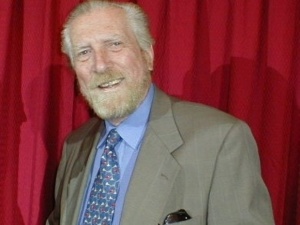Difference between revisions of "Paul Henze"
(image) |
m (Text replacement - " -- " to " — ") |
||
| Line 13: | Line 13: | ||
During [[World War 2]] he worked for 3 years.<ref name=coldwarradio>http://coldwarradios.blogspot.com/2011/05/rip-paul-b-henze-1924-2011.html</ref> | During [[World War 2]] he worked for 3 years.<ref name=coldwarradio>http://coldwarradios.blogspot.com/2011/05/rip-paul-b-henze-1924-2011.html</ref> | ||
In 1950 he got a Masters degree from [[Harvard University]]. | In 1950 he got a Masters degree from [[Harvard University]]. | ||
| − | :1950 | + | :1950 — 1952: US [[Department of Defense]], Foreign Affairs Advisor |
| − | :1952 | + | :1952 — 1958: [[Radio Free Europe]] in Munich, Germany, original management team member<ref name=coldwarradio/> |
:1969: CIA Chief of Station [[Ethiopia]] | :1969: CIA Chief of Station [[Ethiopia]] | ||
:1974 - 1977: CIA Chief of Station [[Turkey]] | :1974 - 1977: CIA Chief of Station [[Turkey]] | ||
| Line 21: | Line 21: | ||
===Demonising the Soviet Bloc=== | ===Demonising the Soviet Bloc=== | ||
| − | According to [[Edward S. Herman]] and [[Frank Brodhead]], Henze was one of the peddlers of a conspiracy theory attributing the attempted assassination of John Paul II to the Bulgarian secret service. along with the journalist [[Claire Sterling]] and the neoconservative [[Michael Ledeen]]. Herman and Brodhead write that: 'The most important investigative work | + | According to [[Edward S. Herman]] and [[Frank Brodhead]], Henze was one of the peddlers of a conspiracy theory attributing the attempted assassination of John Paul II to the Bulgarian secret service. along with the journalist [[Claire Sterling]] and the neoconservative [[Michael Ledeen]]. Herman and Brodhead write that: 'The most important investigative work — or, we should say, creative writing — in establishing the hypothesis of the Bulgarian Connection was done by Claire Sterling, Paul Henze, and Michael Ledeen.' <ref>Edward S. Herman and Frank Brodhead, The Rise and Fall of the Bulgarian Connection, Sheridan Square Publications, May 1986.</ref> |
==Affiliations== | ==Affiliations== | ||
Revision as of 08:38, 26 August 2016
(spook, propagandist) | |
|---|---|
 | |
| Born | 1924 |
| Died | May 19, 2011 (Age 86) |
| Member of | American Committee for Peace in Chechnya, Committee for the Free World |
| Interests | “terrorism” |
| Interest of | Uğur Mumcu |
A cold war propagandist who got into "anti-terrorism" after the fall of the USSR. | |
Paul B. Henze was a CIA station chief in Turkey who assisted Zbigniew Brzezinski in the U.S. National Security Council under President Carter. After his retirement he became a terrorism expert and was one of a group of right-wing experts associated with the Center for Strategic and International Studies during the 1980s. [1]
Contents
Career
During World War 2 he worked for 3 years.[2] In 1950 he got a Masters degree from Harvard University.
- 1950 — 1952: US Department of Defense, Foreign Affairs Advisor
- 1952 — 1958: Radio Free Europe in Munich, Germany, original management team member[2]
- 1969: CIA Chief of Station Ethiopia
- 1974 - 1977: CIA Chief of Station Turkey
- 1977 - 1980:CIA representative to the NSC office in the White House [3]
- Post 2000 : He also served as an adviser to the governments of Turkey, Ethiopia, Georgia, and Uzbekistan.[2]
Demonising the Soviet Bloc
According to Edward S. Herman and Frank Brodhead, Henze was one of the peddlers of a conspiracy theory attributing the attempted assassination of John Paul II to the Bulgarian secret service. along with the journalist Claire Sterling and the neoconservative Michael Ledeen. Herman and Brodhead write that: 'The most important investigative work — or, we should say, creative writing — in establishing the hypothesis of the Bulgarian Connection was done by Claire Sterling, Paul Henze, and Michael Ledeen.' [4]
Affiliations
- Center for Strategic and International Studies
- Central Intelligence Agency
- Radio Free Europe
- Rand Corporation
Contact, References and Resources
Resources
- List of RAND Corporation publications (Accessed: 16 January 2007)
Publications
- Paul B. Henze, International Terrorism and the Drug Connection, Ankara - University Press, 1984.
- Paul B. Henze, The Plot to Kill the Pope, Simon & Schuster, ISBN: 0684183579, 1985.
References
- ↑ see Center for Strategic and International Studies, extract from The "Terrorism" Industry
- ↑ a b c http://coldwarradios.blogspot.com/2011/05/rip-paul-b-henze-1924-2011.html
- ↑ Edward S. Herman and Frank Brodhead, The Rise and Fall of the Bulgarian Connection, Sheridan Square Publications, May 1986, p. 146.
- ↑ Edward S. Herman and Frank Brodhead, The Rise and Fall of the Bulgarian Connection, Sheridan Square Publications, May 1986.